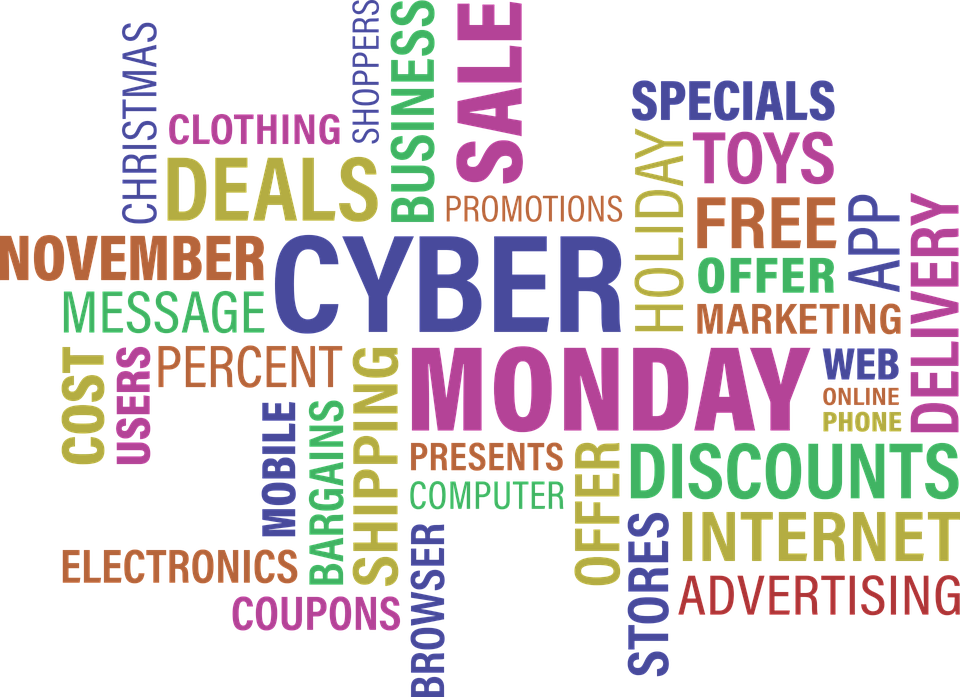
In today’s highly competitive business landscape, the success of any brand hinges upon its ability to captivate and engage consumers. While various marketing strategies exist, one element consistently stands out as a game-changer: the power of strong marketing words. These carefully chosen words possess the potential to evoke emotions, inspire action, and create an indelible impact on target audiences.
Understanding the Influence of Words
1- The Psychology of Words: Exploring the Emotional Triggers
Words have a profound impact on human emotions and can evoke a wide range of feelings. Understanding the psychology behind words is crucial for crafting compelling brand messaging. Certain words have the power to elicit emotions such as joy, excitement, fear, or curiosity. For example, using words like “exhilarating,” “amazing,” or “unforgettable” can create a sense of excitement and anticipation in the minds of consumers. On the other hand, words like “limited time,” “exclusive,” or “secret” can spark a sense of urgency and exclusivity.
2- The Art of Persuasion: Convincing Consumers with Language
Effective marketing is all about persuasion, and words play a pivotal role in influencing consumer behavior. Persuasive language techniques such as rhetorical questions, storytelling, and social proof can be used to engage and persuade the audience. By using words that tap into the desires, aspirations, and pain points of consumers, marketers can position their products or services as solutions to their needs. Persuasive words like “revolutionary,” “proven,” or “guaranteed” can instill confidence and convince consumers to take action.
3- Building Trust and Credibility: Words that Establish Authority
Trust is a vital component of any successful brand. The words used in marketing can either enhance or diminish trustworthiness. By incorporating words that convey expertise, credibility, and authenticity, brands can establish themselves as reliable and trustworthy sources. Words like “expert,” “certified,” or “industry-leading” can help build credibility. Additionally, transparent and honest language builds trust with consumers, creating a foundation for long-term relationships.
In summary, understanding the psychological impact of words allows marketers to tap into the emotions of consumers, persuade them effectively, and establish trust and credibility. By utilizing words strategically, brands can create an emotional connection with their target audience, differentiate themselves from competitors, and ultimately drive consumer action.
Crafting Compelling Brand Messaging
1- Creating a Brand Persona: Words that Define Your Identity
Crafting a compelling brand messaging begins with establishing a distinct brand persona. Your brand persona reflects the personality, values, and unique characteristics of your brand. It sets the tone for how you communicate with your target audience and helps differentiate you from your competitors.
In this section, you’ll explore the power of words in creating a brand persona that resonates with your audience. Consider the tone, language style, and vocabulary that align with your brand’s identity. Are you aiming for a playful and humorous tone, or a more professional and authoritative one? The words you choose should reflect your brand’s personality and appeal to your target market.
2- Differentiation through Words: Standing Out in the Market
With countless brands vying for consumer attention, it’s crucial to find ways to stand out from the competition. Words play a pivotal role in differentiating your brand from others in the market.
In this subsection, delve into the techniques of using strong marketing words to highlight your unique selling propositions and showcase the benefits of your products or services. Analyze the language used by your competitors and identify gaps or opportunities to position your brand differently. By using distinctive words and phrases that emphasize your brand’s strengths and advantages, you can effectively differentiate yourself and attract your target audience’s attention.
3- Establishing Emotional Connections: Words that Resonate with Consumers
Emotions have a profound impact on consumer decision-making. By leveraging the power of words that evoke specific emotions, you can establish a deep emotional connection with your audience.
Explore the range of emotions that align with your brand and products. Are you aiming to inspire joy, excitement, trust, or a sense of belonging? By understanding your target audience’s desires, fears, and aspirations, you can craft messaging that resonates on an emotional level. Incorporate words that evoke the desired emotions, allowing your audience to connect with your brand on a deeper level and build long-lasting relationships.
4- The Art of Storytelling: Words that Transport and Engage
Humans have an innate love for stories. Through storytelling, you can captivate your audience, create a memorable brand experience, and convey your brand’s values and mission.
In this subsection, emphasize the importance of storytelling and the role of words in creating compelling narratives. Explore different storytelling techniques such as using descriptive language, vivid imagery, and relatable characters. Craft a brand story that engages your audience, sparks their imagination, and compels them to become part of your brand’s journey. By using powerful words that transport your audience to a different world or evoke strong emotions, you can leave a lasting impression and foster a sense of loyalty.
By focusing on creating a distinctive brand persona, standing out in the market, establishing emotional connections, and mastering the art of storytelling, you can craft compelling brand messaging that resonates with your audience. Words have the power to shape perceptions, influence decisions, and build brand affinity. With careful consideration and strategic use of strong marketing words, you can create a powerful and irresistible brand communication that sets your business apart in the competitive marketplace.
Power Words That Drive Conversions
In the world of marketing, the ultimate goal is to drive conversions and persuade customers to take action. The strategic use of power words can significantly contribute to achieving this objective. Power words are carefully chosen terms that have a strong emotional impact on the audience, compelling them to engage, make a purchase, or take a desired action. In this section, we will explore the different types of power words and how they can be utilized to drive conversions.
1- Urgency and Scarcity: Words that Trigger Immediate Action
One effective way to drive conversions is by creating a sense of urgency and scarcity. Words that convey a limited time offer, exclusive deals, or limited availability can motivate customers to act quickly. Examples of power words that evoke urgency and scarcity include “limited time,” “act now,” “exclusive,” “limited stock,” “hurry,” and “don’t miss out.” By instilling a fear of missing out (FOMO), these words create a sense of urgency, prompting customers to make a purchase before the opportunity disappears.
2- Benefit-driven Language: Words that Highlight Value Propositions
Customers are always seeking value in their purchases. Benefit-driven language focuses on communicating the unique advantages and benefits that customers will gain from a product or service. Power words like “save,” “gain,” “improve,” “transform,” “enhance,” “boost,” and “discover” emphasize the positive impact that a product can have on the customer’s life. By highlighting the value proposition and demonstrating how the product or service meets the customer’s needs, benefit-driven power words can persuade customers to convert.
3- Call-to-Action: Words that Encourage Response
A strong call-to-action (CTA) is crucial in driving conversions. The CTA is the prompt that explicitly tells the customer what action to take. Power words like “buy now,” “order today,” “get started,” “subscribe,” “join,” “sign up,” and “try for free” act as triggers, compelling customers to take the desired action. These words create a sense of immediate engagement and encourage customers to move forward in their purchasing journey.
4- Social Proof and Testimonials: Words that Build Trust
Social proof plays a vital role in influencing customer behavior. Power words associated with social proof, such as “trusted,” “recommended,” “top-rated,” “best-selling,” “expert-approved,” “customer favorite,” and “testimonials,” instill confidence in potential customers. These words showcase the positive experiences of others and build trust in the brand, making customers more likely to convert.
5- Exclusivity and VIP Treatment: Words that Create a Sense of Privilege
Humans have a natural inclination towards exclusivity and feeling special. Power words that create a sense of exclusivity, such as “exclusive access,” “limited edition,” “members-only,” “VIP,” “invitation-only,” and “premier,” appeal to this desire. By making customers feel like they are part of an exclusive group or have access to special privileges, these words can drive conversions as customers seek to be a part of something unique and special.
By incorporating these power words strategically in marketing materials, brands can tap into the psychological triggers that drive conversions. However, it is important to use these words authentically and responsibly. Customers are becoming increasingly discerning, and misleading or overused power words can backfire, eroding trust and damaging the brand’s reputation. Therefore, it is crucial to strike a balance between persuasive language and delivering on the promises made, ensuring a positive customer experience throughout the conversion process.
The Impact of Strong Marketing Words in Different Platforms
1- Print Advertising: Captivating Audiences through Words
Print advertising has long been a powerful medium for brands to convey their message to a wide audience. In this platform, the impact of strong marketing words is crucial in capturing readers’ attention and enticing them to take action. Whether it’s a headline, a tagline, or the body copy, the choice of words can make or break the success of a print ad.
Strong marketing words in print advertising should aim to evoke emotions, create intrigue, and communicate the key benefits or unique selling propositions of the product or service. By carefully selecting impactful words, advertisers can create a memorable experience for the readers, leaving a lasting impression. For example, words like “exclusive,” “limited edition,” “revolutionary,” or “unforgettable” can convey a sense of exclusivity, scarcity, innovation, and excitement, respectively.
2- Digital Marketing: Crafting Compelling Copy for Online Success
In the digital era, strong marketing words play a vital role in capturing the attention of online audiences. With the abundance of content available, brands need to use powerful and persuasive words to stand out from the crowd. In digital marketing, the key is to create concise and impactful copy that conveys the brand’s message effectively.
In web pages, landing pages, and blog posts, strong marketing words can be used to engage readers, highlight benefits, and drive conversions. Words like “discover,” “transform,” “unleash,” “innovative,” or “unparalleled” can create a sense of curiosity, promise transformation, and emphasize the unique value proposition of the brand or product.
Additionally, in digital advertising such as Google Ads or social media ads, where space is limited, every word counts. Employing strong marketing words that convey urgency, such as “limited time offer,” “act now,” or “don’t miss out,” can instill a sense of FOMO (fear of missing out) and prompt immediate action from the audience.
3- Social Media: The Art of Engaging with Concise and Impactful Language
Social media platforms provide an opportunity for brands to connect with their audience on a more personal level. Strong marketing words on social media can help capture attention, generate engagement, and foster brand loyalty.
In platforms like Twitter, where character limits are stringent, brands must craft concise and impactful messages. Strong marketing words can be used to create intrigue, provoke emotions, or spark curiosity. Words like “unbelievable,” “game-changer,” “inspiring,” or “exciting” can entice users to click on a link, engage with a post, or share it with their network.
On platforms like Instagram or Facebook, where visuals play a significant role, strong marketing words can enhance the impact of the accompanying visuals. By using words that evoke emotions, tell stories, or convey the brand’s personality, businesses can create a stronger connection with their audience and encourage them to take action, whether it’s liking, commenting, or sharing the content.
4- Video Marketing: Combining Words and Visuals for Maximum Impact
Video marketing has gained immense popularity in recent years due to its ability to convey powerful messages and engage viewers. Strong marketing words in videos can complement the visuals and enhance the overall impact of the message.
Whether it’s in a video ad, a product demonstration, or a brand story, the script and spoken words play a crucial role in capturing the audience’s attention and delivering the intended message. Words that evoke emotions, tell a compelling story, or highlight the benefits of the product or service can resonate deeply with viewers. Additionally, incorporating testimonials or endorsements from satisfied customers using strong marketing words can build trust and credibility.
FAQS
1- What is the most powerful word in marketing?
Powerful marketing words that make a promise.
- Guarantee.
- Sale.
- Unconditional.
- Promise.
- Risk-free.
- Pledge.
2- What words to use in marketing?
Marketing words and phrases that communicate value
- Top/top-notch.
- Premium.
- Best value.
- Equivalent to.
- New.
- Safe.
- Secure.
- Efficient.
3- Why use powerful words in marketing?
Power words are persuasive words marketers and advertisers use in copywriting to elicit an emotional response from the target audience. Power words evoke an emotional response to engage the reader, encourage action, and boost conversion rates
4- What are brand words?
Branding words are descriptors you want people to use to endorse your business. These are words that define you, your work, and what clients get by working with you… words you hope people are using when you’re not around!
5- What is a marketer key word?
Marketing keywords are the words and phrases people use to look for things on the internet. Search engines deliver results based on algorithms meant to make the results more relevant to users. Along with keywords on the site, search engines factor in how frequently a website updates content and the site’s validity.
6- Why is a word powerful?
Words are powerful. Whether you write or speak them, they do have an impact on you and the others. They express feelings and share knowledge. They can change someones mood completely and ignite a spark in them.
7- Why are kind words powerful?
Genuine kind words create feelings of warmth and connection. “Connection is the energy that exists between people when they feel seen, heard and valued,” says Brene Brown. It is with these feelings that we produce oxytocin. Oxytocin is a cardioprotective hormone.
Conclusion
In the ever-evolving world of marketing, the influence of words remains a timeless tool for brands seeking to create meaningful connections with their target audience. By understanding the psychological triggers, crafting compelling brand messaging, and utilizing power words strategically, businesses can unlock the secret to irresistible brand communication. From print advertising to digital platforms, the impact of strong marketing words is evident in various marketing channels. By harnessing the potential of words, brands can effectively differentiate themselves, inspire action, and cultivate long-term relationships with their customers.
In this era of information overload, it is crucial for brands to cut through the noise and leave a lasting impression. The judicious use of strong marketing words enables businesses to rise above the competition, resonate with consumers on a deeper level, and ultimately drive conversions. By embracing the art of persuasive language, brands can forge a path towards success, establishing themselves as leaders in their respective industries.





 Get Sala Now
Get Sala Now